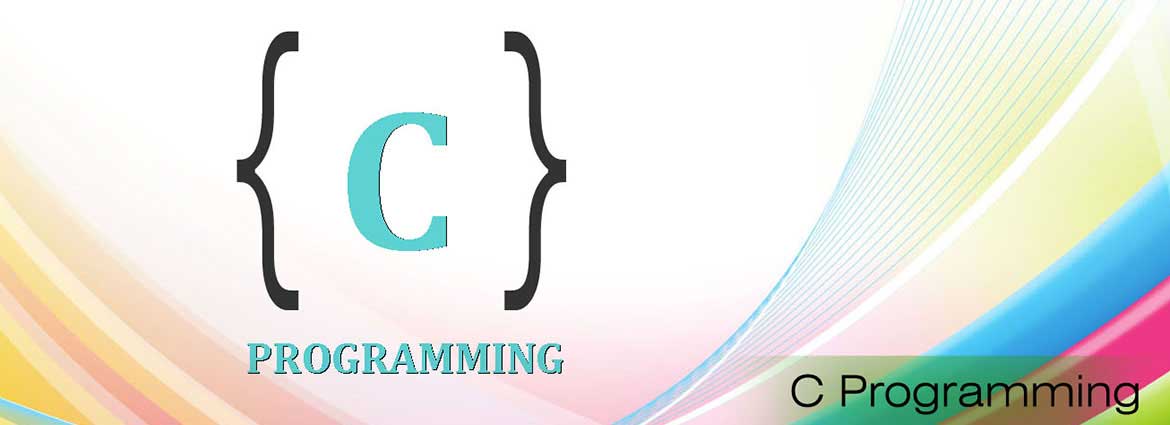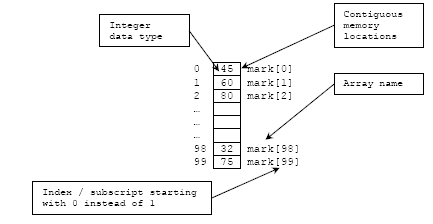
C Programming Course Details
C Programming is a fundamental course recommended for all the students whose goal is to understand the concept of Programming language and its implementation in the real time world. We Cover C,and Linux Operating system to give a firm foundation for a career as systems programmer. .
The main reason for using C programming is because of its versatility. C has been used successfully for nearly all types of project programming, from simple tablets to complex operating systems. C has features such as a portable compiler, a strong operator repository, easy and elegant to use syntax, user experience and a wide variety of data types. A simple C programming tutorial is sufficient to get someone started with C, because it has almost no requirements for learning it. Programming C offers the skills necessary to learn the basics of C programming language. The learning curve leads participants to the complexity of the input and pointers of files. The programming of Learning C is critical for developers because it is widely employed in software development such as desktop applications, compilers / linkers, tools and device control tools.
HIGHLIGHTS
Course description
Learning objectives
Course outline
 Introduction to compiling and software development
Introduction to compiling and software development  Basic scalar data types and their operators
Basic scalar data types and their operators  Flow control
Flow control  Complex data types: arrays, structures and pointers
Complex data types: arrays, structures and pointers  Structuring the code: functions and modules
Structuring the code: functions and modules  Preprocessing source code
Preprocessing source code
Chapters
 Absolute basics
Absolute basics  Languages: natural and artificial
Languages: natural and artificial  Machine languages
Machine languages  High-level programming languages
High-level programming languages  Obtaining the machine code: compilation process
Obtaining the machine code: compilation process  Recommended readings
Recommended readings  Your first program
Your first program  Variable – why?
Variable – why?  Integer values in real life and in “C”, integer literals
Integer values in real life and in “C”, integer literals
 Floating point values in real life and in “C”, float literals
Floating point values in real life and in “C”, float literals  Arithmetic operators
Arithmetic operators  Priority and binding
Priority and binding  Post- and pre -incrementation and -decrementation
Post- and pre -incrementation and -decrementation  Operators of type op=
Operators of type op=  Char type and ASCII code, char literals
Char type and ASCII code, char literals  Equivalence of int and char data
Equivalence of int and char data  Comparison operators
Comparison operators  Conditional execution and if keyword
Conditional execution and if keyword
 printf() and scanf() functions: absolute basics
printf() and scanf() functions: absolute basics
 Flow control
Flow control
 Conditional execution continued: the “else” branch
Conditional execution continued: the “else” branch
 More integer and float types
More integer and float types
 Conversions – why?
Conversions – why?
 Typecast and its operators
Typecast and its operators
 Loops – while, do and for
Loops – while, do and for
 Controlling the loop execution – break and continue
Controlling the loop execution – break and continue
 Logical and bitwise operators
Logical and bitwise operators


 Switch: different faces of ‘if’
Switch: different faces of ‘if’  Arrays (vectors) – why do you need them?
Arrays (vectors) – why do you need them?  Sorting in real life and in a computer memory
Sorting in real life and in a computer memory  Initiators: a simple way to set an array
Initiators: a simple way to set an array  Pointers: another kind of data in “C”
Pointers: another kind of data in “C”  An address, a reference, a dereference and the sizeof operator
An address, a reference, a dereference and the sizeof operator  Simple pointer and pointer to nothing (NULL) & operator
Simple pointer and pointer to nothing (NULL) & operator  Pointers arithmetic
Pointers arithmetic  Pointers vs. arrays: different forms of the same phenomenon
Pointers vs. arrays: different forms of the same phenomenon  Using strings: basics
Using strings: basics  Basic functions dedicated to string manipulation
Basic functions dedicated to string manipulation
 Memory management and structures
Memory management and structures  The meaning of array indexing
The meaning of array indexing  The usage of pointers: perils and disadvantages
The usage of pointers: perils and disadvantages Void type
Void type  Arrays of arrays and multidimensional arrays
Arrays of arrays and multidimensional arrays  Memory allocation and deallocation: malloc() and free() functions
Memory allocation and deallocation: malloc() and free() functions  Arrays of pointers vs. multidimensional arrays
Arrays of pointers vs. multidimensional arrays Structures – why?
Structures – why?  Declaring, using and initializing structures
Declaring, using and initializing structures Pointers to structures and arrays of structures
Pointers to structures and arrays of structures  Basics of recursive data collections
Basics of recursive data collections
 Functions – why?
Functions – why?  How to declare, define and invoke a function
How to declare, define and invoke a function Variables' scope, local variables and function parameters
Variables' scope, local variables and function parameters  Pointers, arrays and structures as function parameters
Pointers, arrays and structures as function parameters  Function result and return statement
Function result and return statement
 Void as a parameter, pointer and result
Void as a parameter, pointer and result
 Parameterzing the main function
Parameterzing the main function
 External function and the extern declarator
External function and the extern declarator
 Header files and their role
Header files and their role
 Files vs. streams: where does the difference lie?
Files vs. streams: where does the difference lie? Header files needed for stream operations
Header files needed for stream operations


 Opening and closing a stream, open modes, errno variable
Opening and closing a stream, open modes, errno variable Reading and writing to/from a stream
Reading and writing to/from a stream  Predefined streams: stdin, stdout and stderr
Predefined streams: stdin, stdout and stderr  Stream manipulation: fgetc(), fputc(), fgets() and fputs() functions
Stream manipulation: fgetc(), fputc(), fgets() and fputs() functions  Raw input/output: fread() and fwrite() functions
Raw input/output: fread() and fwrite() functions  Preprocessor and complex declarations
Preprocessor and complex declarations  Preprocessor – why?
Preprocessor – why?  #include: how to make use of a header file
#include: how to make use of a header file
 #define: simple and parameterized macros
#define: simple and parameterized macros  #undef directive
#undef directive Predefined preprocessor symbols
Predefined preprocessor symbols Macro operators: # and ##
Macro operators: # and ##  Conditional compilation: #if and #ifdef directives
Conditional compilation: #if and #ifdef directives  Avoiding multiple compilations of the same header files
Avoiding multiple compilations of the same header files  Scopes of declarations, storage classes
Scopes of declarations, storage classes  User defined types-why?
User defined types-why?  Pointers to functions
Analyzing and creating complex declarations
Pointers to functions
Analyzing and creating complex declarations

